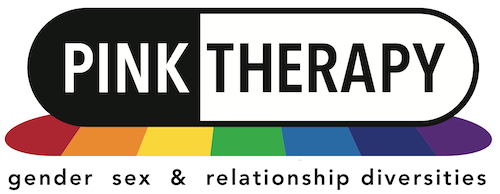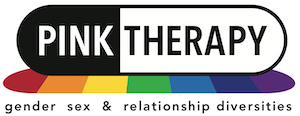Understanding Minority Stress and its Impact on Mental Health for LGBTQ+ People
Living as an LGBTQIA+ individual in a world that is not always accepting can lead to unique stressors significantly impacting mental wellbeing. This page explores minority stress its effects on mental health for LGBTQ people and how specialised minority stress therapy and affirming mental health support can help. Pink Therapy connects you with LGBTQ mental health services UK designed to provide understanding and effective care.

What is Minority Stress?
Minority stress refers to the high levels of chronic stress faced by members of stigmatised minority groups. This stress arises from various sources, including:
External Stressors
- Prejudice, discrimination and unfair treatment.
- Experiences of harassment, violence or microaggressions.
- Societal stigma and negative stereotypes related to sexual orientation, gender identity or expression.
Internal Stressors
- Internalised negative beliefs about oneself (e.g. internalised homophobia, biphobia or transphobia).
- The expectation of rejection or discrimination leading to hypervigilance.
- The stress of concealing one’s identity or navigating the coming out process.
These experiences are not isolated incidents but often ongoing realities that contribute to a heightened stress load distinct from general life stressors. Understanding this is the first step in seeking support for minority stress.
The Impact of Minority Stress on Mental Health for LGBTQ People
The cumulative effect of minority stress can have significant consequences for the mental health for LGBTQ people. Research consistently shows higher rates of:
- Anxiety disorders and panic attacks.
- Depression and mood disorders.
- Post-traumatic stress disorder (PTSD), particularly for those who have experienced significant harassment or violence.
- Suicidal ideation and self-harm.
- Substance misuse as a coping mechanism.
- Feelings of isolation, loneliness and low self-esteem.
It’s crucial to recognise these are not inherent weaknesses but understandable responses to chronic adversity. Accessing LGBTQ mental health services UK can provide vital support.

Why Pink Therapy for Minority Stress Counselling?
Pink Therapy is dedicated to connecting LGBTQIA+ individuals with therapists who possess a deep understanding of minority stress and its effects. When you seek support for minority stress through our directory, you find:

Specialist Knowledge
Therapists who are trained and experienced in working with the specific mental health needs of LGBTQIA+ individuals.

Affirming Stance
A commitment to providing therapy that is validating, respectful and empowering.

UK-Wide Access
A UK-wide network of professionals offering both online and in-person sessions.

A Safe Space
We aim to connect you with affirming mental health support that helps you heal and thrive.
How Minority Stress Therapy and Affirming Mental Health Support Can Help
Specialised minority stress counselling and affirming mental health support are vital for addressing these impacts effectively. Therapy can provide:
- Validation and Understanding: A space where your experiences of minority stress are acknowledged, understood and not dismissed.
- Coping Strategies: Developing healthy ways to manage stress, anxiety and difficult emotions.
- Building Resilience: Strengthening your ability to navigate a sometimes hostile world and bounce back from adversity.
- Processing Trauma: Working through past experiences of discrimination, harassment or trauma in a safe environment.
- Identity Affirmation: Reinforcing a positive sense of self and countering internalised negative messages.
- Empowerment: Helping you to advocate for yourself and find community and connection.
- Support for Minority Stress: Tailored approaches that directly address the unique ways stress manifests for LGBTQIA+ individuals.
Finding Support and Building Resilience Against Minority Stress
If you are an LGBTQIA+ individual experiencing mental health challenges, it’s important to know that support is available and you don’t have to go through it alone.
- Acknowledge Your Experiences: Recognise that what you’re feeling is a valid response to stress.
- Seek Professional Help: Connect with a therapist who understands minority stress.
- Build Community: Connect with other LGBTQIA+ individuals for peer support and shared understanding.
- Practice Self-Care: Engage in activities that promote well-being and reduce stress.
- Set Boundaries: Protect yourself from situations or individuals that are harmful or invalidating.
Minority Stress and Therapy FAQs
How do I know if what I'm experiencing is minority stress?
If you are LGBTQIA+ and experience ongoing stress anxiety, or mental health issues related to discrimination, prejudice, internalised stigma or feeling different because of your identity, minority stress is likely a factor. A therapist can help you explore this.
Can minority stress counselling really make a difference?
Yes. Therapy with a professional who understands minority stress can provide validation-specific coping strategies to help you process trauma and affirm your identity, leading to improved mental health for LGBTQ+ people.
Are there specific types of therapy best for support for minority stress?
Various therapeutic approaches can be helpful, including person-centred therapy, CBT, trauma-informed care and others when delivered from an affirming mental health support perspective by a GSRD-aware therapist. The key is the therapist’s understanding and affirming stance.

